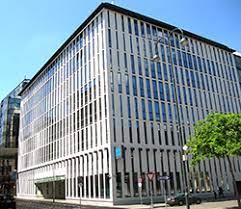The Minister of Budget and National Planning Senator Udoma Udo doma has given more insights on the focus of the emerging 2017 national budget currently in the work in his ministry.
Key targets of the budget will be to stimulate private sector investments and quicken the exit of the economy from recession.
In a statement signed by the media adviser to the minister Mr. Akpadem James, the minister said “the good news is that the budget is almost ready,” noting that “We are almost through with our consultations with the national assembly on the medium term expenditure framework and the outlines of the 2017 budget, and will soon be submitting it to the national assembly for their consideration”.
Noting that budget is one of the most important instruments of achieving economic objectives of government, the minister explained that in setting out the spending plan and other priorities of government, the annual budget plays an important signaling role for private economic actors, whose activities ultimately determine the health of the economy.
According to him, “government has identified a number of short-term recovery initiatives and has also worked out a long-term growth plan, all of which have been incorporated in the National Economic Recovery and Growth Plan (NERGP), and part of which has been considered in the preparation of the 2017 Federal Government Budget.
NERGP will present a coherent summary of Nigeria’s short and medium-term economic plans for the period 2017-2020. “In other words, by putting government strategies, directions, policy priorities and intended initiatives in one place, other stakeholders are better able to take their own strategic economic decisions”.
“We have made our immediate priority to stimulate and revitalise the economy. We are constantly looking at ways to develop and build social safety nets to mitigate the effects of currency weakness and re-pricing of petroleum products. Hence our social investment programmes”.
“Furthermore, government has adopted a targeted approach with respect to capital expenditure to ensure that budgetary releases are consistently made to sectors like infrastructure, agriculture and others whose activities have the capacity of driving economic growth and fostering job creation.
He reiterated government’s desire to access some foreign borrowings at concessional terms for budget support, enhancement of investment in infrastructure, to return the economy to growth path and also to drive additional revenues to fund the incremental debt burden.
Explaining why sole reliance on domestic borrowing is unwise, he said excessive domestic borrowing drives up interest rates and crowds out the private sector. “The infrastructure investment is expected to catalyse private capital into infrastructure and drive productivity and economic growth.









